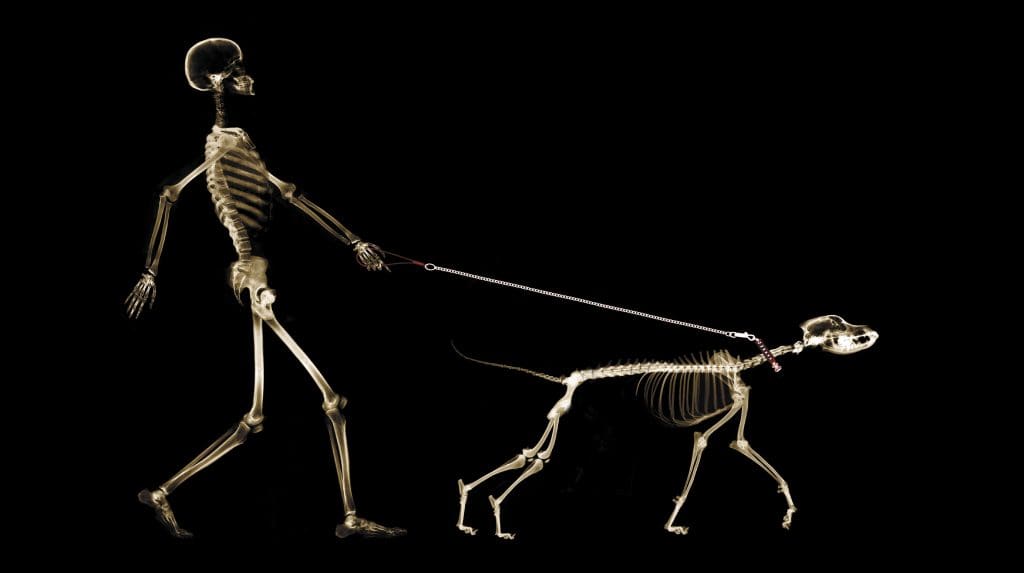MAN versus DOG
By Mark Fulton – former Contributing Author to Crime, Justice and America magazine. Originally published in 2002 and reposted with permission from Crime, Justice and America magazine
One of the more widely reported news stories of 2000 was the outrageous road-rage death of a cute little dog named Leo.
Newspapers, radio stations, and magazines reported the details. People set up web sites to help catch the killer, or to memorialize the dead dog. And a local news radio station helped start a reward fund to help find the killer. The fund eventually grew to $120,000. To find a dog killer.
A bichon frisé, Leo was the epitome of cute: a little white powder puff of a dog, less than a foot tall, with black button eyes, and a black nose over smiley-face lips. Everybody loves cute dogs. In fact, just judging by dollar amounts, they love cute dogs more than people.

Outrageous Road Rage
The details of Leo’s death were truly outrageous. His owner, Sara McBurnett, was driving into San Jose International airport to pick up her airline-pilot husband, when a black sport utility vehicle changed lanes directly in front of her. Unable to stop, Sara bumped the back bumper of the SUV.
Apparently there was negligible damage if any, to either vehicle, but for some reason, the driver of the SUV was incensed. He exited his truck in a rage and pounded on Sara’s driver-side window.
As quoted in the San Jose Mercury News, Sara said, “He was yelling at me, asking me what did I think I was doing. (Expletives deleted.) I opened my window. I said I was sorry but I pointed out to him that he actually did cut in front of me.”
At that point, he reached in, grabbed Leo, who was on Sara’s lap, and threw him into the oncoming three lanes of traffic exiting the airport. Sara jumped out of her car and attempted to save Leo, but she wasn’t fast enough. The man got back into his truck, and cutting across the oncoming traffic, sped away from the airport. Witnesses confirmed Sara’s story, but couldn’t provide a license number for the killer’s SUV. “We don’t have a lot to go on here,” said the San Jose police.
Media Revenge
Then the media took over. After the original report, more than 100 follow-up stories appeared in the San Jose Mercury News alone. Countless stories appeared on national and local television news. Radio reporting was relentless. From the original $5,000 reward, over $120,000 was raised for the arrest and conviction of the perpetrator. People sent letters, cards, e-mails, and even flowers to the investigating officers. Leo’s death had captured the hearts and minds of America.

People, okay probably everybody, wanted Leo’s killer captured and convicted, so they chipped in. There’s an old saying, “Money talks.” And money gets people to talk. Not only did people send in reward money, they also phoned, mailed, and e-mailed vital information. Some did it for the reward money, more did it to make sure that Leo’s killer got nailed. And guess what, he did. And several people happily shared the reward money.
What’s It Worth To You?
It’s a good thing the killer was caught and convicted. A good thing people cared and wanted to help. But the truly amazing thing is the amount of money the public raised to help catch the killer – of a dog.
It was obviously a cruel thing to do to the dog. It was painful for the owner – especially since she watched the whole thing. But it does make one wonder about peoples’ priorities when you see the amounts victims’ families are able to raise for tips on the murder or kidnapping of their loved ones – and compare those rewards to what was donated for the death of a dog.
Only $20,000 could be raised to help catch a serial killer in the San Jose area. This was no ordinary serial killer. This murderer had been butchering local women and taunting their relatives about where he left their remains.

When a 23-year-old University of Georgia law school student was found slain in her fire-damaged apartment last year, the governor and local businesspeople came up with $15,000 to raise the reward total to $26,000.
The FBI offered a $50,000 reward, augmented by a $10,000 donation by an anonymous donation by a private citizen, in the kidnapping case of two little girls in Oregon.
The family of missing Washington intern Chandra Levy managed to raise $55,000 before another donor offered to double the amount—for a limited time.
A Chicago widow and her co-workers have been selling fund-raiser and raffle tickets to raise money for a reward—hoping to solve the murder of her husband.
And in Aiken county Georgia, Police offered $6,000 for help in finding the killer of an 18-year-old mother. $5,000 of this money was donated by the Carole Sund/Carrington Memorial Reward Foundation. This organization was formed to provide resources to families without the economic means to post rewards themselves, by a family who lost two members to a brutal abduction and murder.
The Official Value
With what’s available through official channels, its no wonder victim’s families try to raise reward money themselves. Most Crime Stoppers programs offer top reward money of ,000 for violent crimes. The average amount paid out for tips is $125. There are exceptions.
In New York City, they’ve increased their top reward to $2,000 for a violent felony crime. Nashville and Davidson County Tennessee voted up to ,000 “to be used to reward private citizens for providing assistance or information leading to the arrest of Paul Reid” who had been convicted of multiple murders and sentenced to death. Long Beach has offered as much as ,000 in cases where police officers were attacked or slain. The Los Angeles City Council has posted rewards from ,000 and ,000 for cases involving rape, murder, and hate crimes.
Six of the 10 men on the FBI’s Most Wanted List – which includes multiple murderers and armed robbers – have bounties of $50,000 each. The person who can help solve one of America’s most publicized unsolved mystery, the murder of JonBent Ramsey, would get a $100,000 reward.
Lest you think that’s progress, consider this. In L.A. you can earn a ,000 reward for information leading to the arrest and conviction of a person who cut down 14 trees in the San Fernando Valley. And in Oregon, you can get up to $1,300 for helping to catch a bird killer—courtesy of the Audubon Society of Corvallis and the Wildlife Watch Fund.

And they’re not even dogs.
And Does It Really Matter?
It worked in Leo’s case. The killer was caught and convicted. Maybe because he was a dog. A cute dog.
But, in many of the other cases we listed, the victims are still missing. The killers are still at large. And raising the amount of the reward money has not resolved the cases.
Chandra Levy’s remains were not found because somebody was looking for a reward, but because he was looking for turtles.
From January 2000 through June 2001, only one of the 58 rewards totaling more than .5 million resulted in a conviction in L.A. In the same period, city officials paid out $266,000 in reward money related to nine earlier cases.
In a recent case in the United Kingdom, a 14-year-old girl provided evidence in the stabbing death of a 10-year-old boy. The Daily Mail posted a reward of £50,000. And the girl turned in four boys for the death. She was later captured on police video singing “I’m in the money.” The informer later agreed she had made five references to cash during police interviews, but said she was just “joking and mucking around.” And, though she later denied wanting the reward—even claiming she would refuse the money—the police are left in a quandary. After the negative publicity, can they trust her evidence, and will it stand up in court? In earlier cases in the U.K., courts have questioned the validity of testimony offered on promise of reward money.
Desperate families always hope that media attention and money will lead to the recovery of their loved ones, or the conviction of their killers. But the U.S. government has offered .5 million for the apprehension of the person behind the Anthrax attacks of last year— million for the capture of Osama bin Laden. Despite the relentless media attention, neither reward has been claimed.
But it worked for the dog.




















